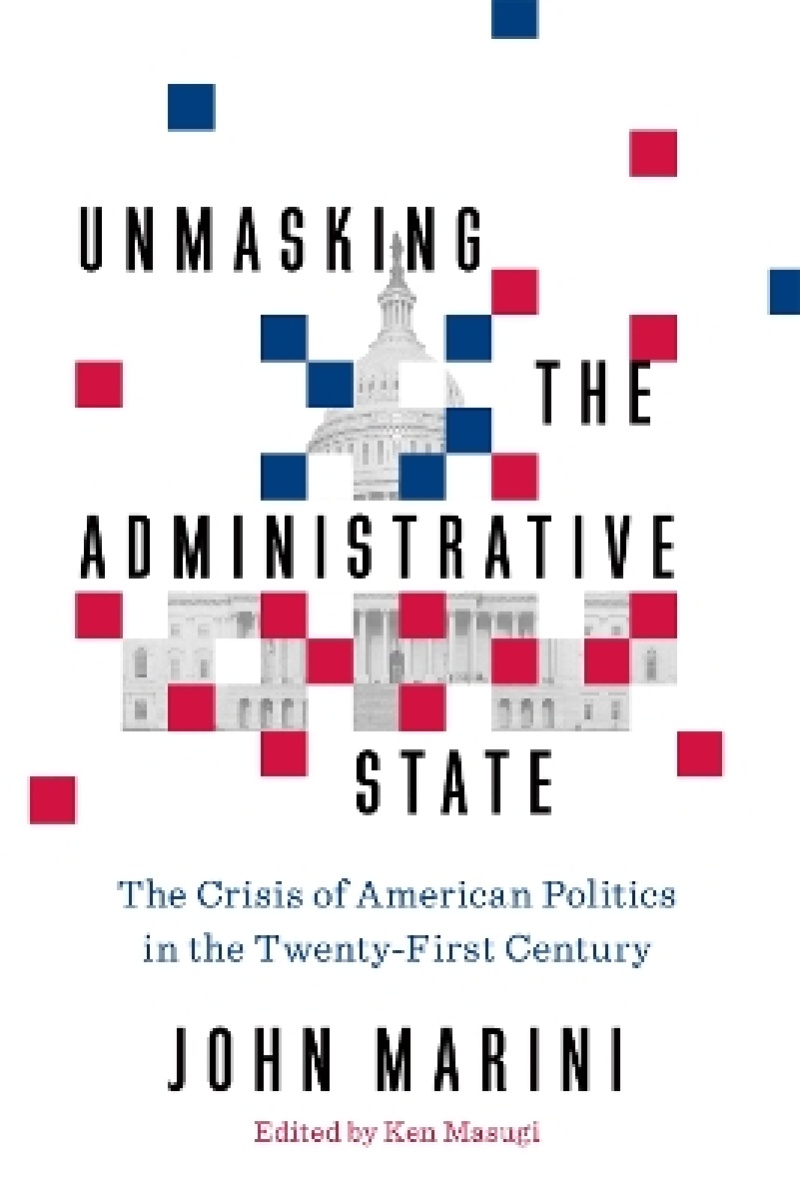The election of Donald J. Trump to the presidency shocked the political establishment, triggering a wave of hysteria among the bicoastal elite that may never subside. The biggest shockwaves of all, however, were felt not in the progressive parishes of Manhattan or San Francisco, but in the halls of the political elite’s cherished and oft-overlooked center of power—Washington, DC’s sprawling “administrative state”—for President Trump represented an existential threat to its denizens, who came to be known as “swamp creatures.”
How did it come to pass that the “draining of the swamp” would become a core aim of the Trump administration, impacting everything from judicial appointments to the federal budget and regulatory policy? Marini’s unmasking of the administrative state goes beyond bureaucracy or legalism to its core in an intellectual elite whose consensus transcends whatever disagreements flare up. The universities, the media, and think-tanks that denounce Trump are its heart.
The answer to this question and many more lies in the underappreciated but revolutionary scholarship of Professor John Marini, collected in his new book, Unmasking the Administrative State, which tells the critical missed story of the last century of political history: The ascendance of the theory behind and resultant growth of an administrative state that has supplanted limited constitutional government with the tyranny of unbounded anticonstitutional bureaucracy.
Marini illustrates the existential threat of the administrative state to our republic, exposes the regressive philosophy from which it springs, and argues for the reassertion of the founding principles to restore self-government. The Trump administration may be the best chance to apply the lessons of Marini’s life’s work and seize this remarkable opportunity to restore power to its rightful owners: the American people.
Les mer
“John Marini and Ken Masugi have led consequential lives, much of those lives together. They learned together in Claremont. They worked together for the great Clarence Thomas. They were among the earliest to explain the nature and the dangers of the modern administrative state. They continue that work in this book—an achievement of decades.”
—Larry P. Arnn, President of Hillsdale College
“John Marini vividly portrays the collapse of the Constitution and its consequences for ordinary citizens and the way they lead their lives. But we must take heart that the administrative state that has replaced the old Constitution may yet be contested, with the aid of scholars such as Marini.”
—Mark Levin
“When I was at EEOC I hired Ken Masugi and John Marini . . . and that began this wonderful intellectual journey . . . studying how the structure of the Constitution protects individual liberty. . . . We debated at length the implications of natural-law thinking and speculated on how it might apply to contemporary political discussions. These arguments stimulated my mind in a way that no discussion of current events could possibly hope to equal.”
—Justice Clarence Thomas
“This . . . wide-ranging and erudite book . . . moves easily from history to political theory to constitutional law. The author’s journey runs from the framers through Tocqueville, the Progressives, Roosevelt, and Reagan, right up to Trump, with plenty of enlightening detours along the way. And if you think that nineteenth-century German philosophers could not possibly have anything to do with the rise and rise of the administrative state, read this book and see if it makes you think again.”
—Gary Lawson, the Philip S. Beck Professor of Law at Boston University
Les mer
Produktdetaljer
ISBN
9781641770231
Publisert
2019-03-14
Utgiver
Vendor
Encounter Books,USA
Høyde
228 mm
Bredde
152 mm
Aldersnivå
G, 01
Språk
Product language
Engelsk
Format
Product format
Innbundet
Antall sider
352
Forfatter
Redaktør
Biographical note
John Marini is a professor of political science at the University of Nevada, Reno. He received his PhD in government at the Claremont Graduate University and has also taught at Ohio University and the University of Dallas. During the Reagan administration, he served as a Special Assistant to then-Chairman of the Equal Employment Opportunity Commission, Justice Clarence Thomas. Professor Marini was Justice Thomas’s self-described first mentor on the American Constitution.He is a Senior Fellow of the Claremont Institute in California and has been a member of the Nevada Advisory Committee of the US Civil Rights Commission. In addition to his pioneering work on the administrative state, Professor Marini is the author of numerous popular and scholarly articles on politics, political theory, and film, especially the films of John Ford. He is also the author or editor of several books, including The Progressive Revolution in Politics and Political Science: Transforming the American Regime; The Imperial Congress: Crisis in the Separation of Powers; The Politics of Budget Control: Congress, the Presidency, and the Growth of the Administrative State; and The Founders on Citizenship and Immigration. He was awarded the Claremont Institute’s Henry Salvatori Prize in the American Founding in 2011. In 2013, he served as the Distinguished Resident Fellow at the Kirby Center for Constitutional Studies in Washington, DC.
